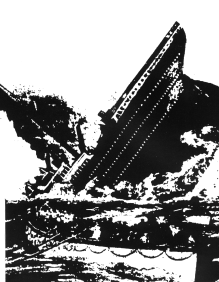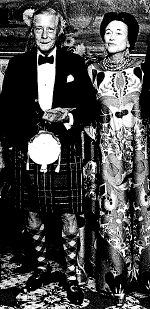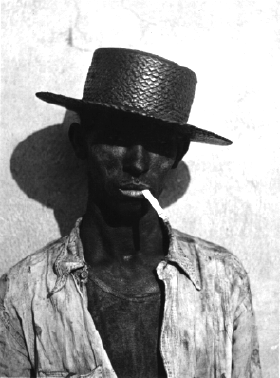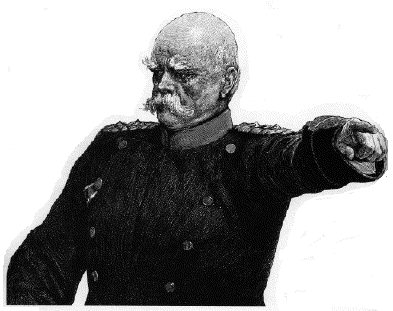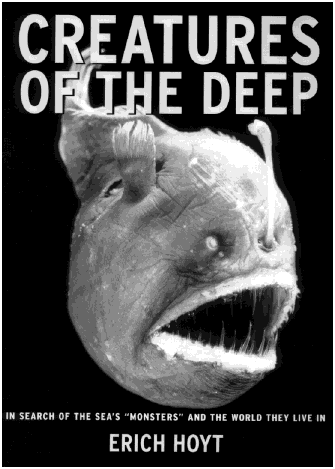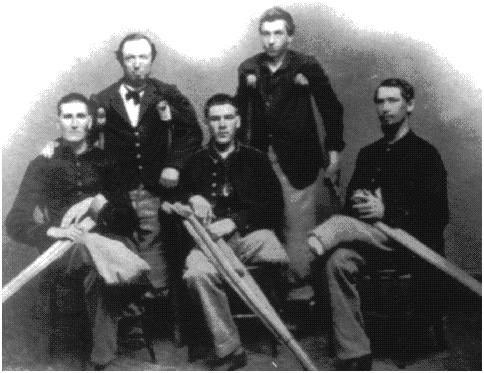From the Early Days of
RALPH
(those published between 1994 and 1999),
and plucked 21 funny, interesting, or
groundbreaking reviews, essays, poems
and letters to remind our readers
(and ourselves) of the original
if not capricious ways
of our infant magazine.
Fields
Leon Wolff
(Time-Life)
Whiter than the whitewash on the wall,
Wash me in your water
That you wash your dirty daughter
And I shall be whiter than the whitewash on the wall.
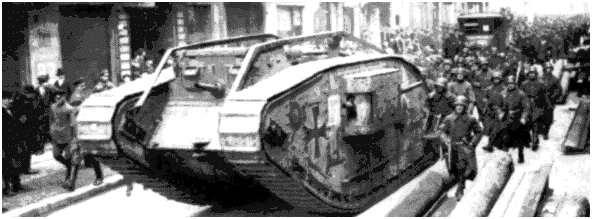
Go to the original
review
The Tijuana
TitanicThe Titanic should be setting sail shortly, and I hope to be on board at the launching. The grand ship, filled with lights and music and glamour, setting sail to another Byzantium. The hundreds of us in our tuxedos and formal gowns, so elegant, there in the first class ballroom, holding our glasses of 1911 vintage Champagne, with the band playing "Just a Bird in a Gilded Cage" and "Casey Did Dance with the Strawberry Blonde."How glorious it will be to sail past San Diego and Long Beach and Dana Point, all bright lights and music, forging ahead into the foggy darkness, racing along at twenty-five knots, to collide, finally and inevitably, with an errant ice-cube calved by the Santa Barbara Yacht Club Cocktail Lounge.
Go to the
ArticleColors of the
Mountain
Da Chen
(Random HouseGiven this sad history, and the bleakness of the lives of those who were considered enemies of the Maoist state, one would expect Da Chen's story to be a tragedy, on the order of Hunger, The Grapes of Wrath, or Black Boy. But this is a tale of defiance, and The Colors of the Mountains ends up as a triumphal novel. Further, with its comic style, it quickly turns to a picaresque bildungsroman, closer to Mark Twain than John Steinbeck. This, for example, is the description of Da riding a bike with his friends, going over to the nearby village of Putien to see their first movie:
Sen's bike was a museum piece. It rattled in places where it shouldn't have and was mute where it should have made noise. It was, nonetheless, mounted with a long backseat. There were five of us; we rode that bike the acrobatic way. One pedaled, two straddled the backseat, and one sat sideways on the handlebars, barely giving the pedaler room to see. The fifth passenger ran behind and helped push the heavy load uphill. Every two miles we changed seating arrangements, so that both runner and pedaler would get a rest. It was pathetic to see the old bike groaning under all that weight, slogging through the rough, muddy road with almost flat tires.
Go to the
ReviewThe Windsor
Style
Suzy Menkes
(Salem House)The Duke and Duchess (called, once, by an errant radio announcer, the "Duck and Doochess of Windsor") weren't exactly Yesterday's Fun Couple, although they did have their moments: He would call newspapers "noospapers" with the American inflection, and would answer the telephone: "Hallo! It's the Dook here.""I just love your pansies," said a guest at the Moulin de la Tuilerie, looking at the Duke's herbaceous borders.
"In the garden or at my table?" replied the Duchess.
Once, Wallis wrote a friend that the Duke "stayed until 3AM and played the bagpipes for them and stood on his head." Nancy Mitford was one of many not amused by their antics:
He looks like a balloon, she like the skeleton of some tiny bird, hopping in her hobble skirt.
Go to the original
review
The Space Between
Our FootstepsPoems and Paintings
From the Middle East
Naomi Shihab Nye
(Simon & Schuster)From the Diary of an
Almost-Four-Year-Old
Hanan Mikha'il
'AshrawiTomorrow, the bandages
will come off. I wonder
will I see half an orange,
half an apple, half my
mother's face
with my one remaining eye?I did not see the bullet
but felt its pain
exploding in my head.
His image did not
vanish, the soldier
with a big gun, unsteady
hands, and a look in
his eyes
I could not understand.Go to the original
poemsBordertown
Barry Gifford
(Chronicle)Theoretically, this is an unflinching description of The Border, that new mega-country --- neither pure Gringo nor pure Latino --- that extends from the Gulf of Mexico to the Pacific. But Bordertown is, in reality, an extended exegesis on sex, murder, sex, drug trafficking, sex, killings, sex, corrupt cops, sex, pimps, and a most noisome fascination with whoremongering.Go to the complete
reviewMidlife Queer
Autobiography of
A Decade
1971 - 1981
Martin Duberman
(Wisconsin)But when a man loves men, he is but wanting himself, and his lust perforce has to be turned inwards, for he owns the same body that he craves (albeit with variations). This accounts for the unremitting passion that most gays display, the need to sexually "act-out" many times a week (or for some, many times a day). Like a feed-back circuit, lust amplifies itself and the key --- the often ignored key --- is that for many males, one is merely required to love one's self for satisfaction and fulfillment. It's known as onanism. This self-love can, by definition, be far more satisfying than it is for a non-gay --- for a heterosexual male to have sex with himself is to have sex with an object in which he has but an intellectual interest.In addition, a heterosexual male can pretend to own the body of a woman that he desires (in this society, it's called prostitution, or, in a more refined setting, marriage), but the gay male has another choice: he already owns the body that will feed his passion. He is, by definition, in love with the mirror.
Go to the original
review
The Sweet Sweet
Taste of
AsophæditaW. L. WarrenThere are two stories from my youth, which are greeted with total scepticism by good friends --- and this is one of them (the other is what happened to me when they sent me away to The Hun School --- a school in which the older students did things to the younger students in keeping with the spirit and meaning of the word "Hun").No, this is a tale about North Florida, and the soft wind off the sea, a passionate heat, palm-trees. Initiation ceremonies took place some time in late April. They fell into three parts. The formal robe-and-candle foo-foo-raw was stolen nakedly from Masons, and as I have been sworn to eternal secrecy, I can't tell you about that. It came last, anyway, and the only thing I can report to you was that we were each required to recite the entire Greek alphabet from memory which I can, with strange mnemonic loops that bear us out of our childhoods, still perform to this day. If I am drunk enough; if I am in the mood; if you care to ask me, and to listen.
Go to the
articleComputers
And MachetesCarlos AmanteaLater, I thought of all the things I should have said. I should have said that they were the hope of Mexico, the dream of the future of their country and the world; that the world and their lives were filled with hope; that they would be assuming the burdens that were soon to be laid down by my generation, and, like a tree growing by the side of the deep river, they would extend their roots of hope and dreams into the heartland of their homeland, or the homeland of their heartland, with branches stretching up into the bright skies which would carry all our hopes and dreams like clouds, sailing along smartly into the future.That was the speech I should have given but I didn't because the sun was hot and they in their crisp clean uniforms were standing directly in the sun and furthermore my John Gorrie Junior High Spanish didn't include in its vocabulary words like "heartland" and "homeland" and "aspirations."
One thing I did notice about my local school were the bright faces and the fact that no one was laughing at me and at the ceremony for my $400 used Quadra computer. I know these people, I've visited their homes, some of their parents have worked for me. I knew what a sacrifice many of them were making to keep the kids in school --- to buy the uniforms and the books and, most important of all, not to let them drop out and work in the fields, to pay for the food and shelter for the family.I also noticed no metal detectors, no guards, no ID badges. Just 200 bright-faced, clean, uniformed kids, standing in gentle formation, applauding me, and my humble gift, with a great deal of enthusiasm.
Go to the
Reading14 - 18 ---
Understanding
The Great WarStéphane Audoin-Rouzeau
Annette Becker(Hill & Wang)With chilling humour, historian John Keegan recounts how he once offended the curator of a war museum: "I constantly recall the look of disgust that passed over the face of a highly distinguished curator of one of the greatest collections of arms and armour in the world when I casually remarked to him that a common type of debris removed from the flesh of wounded men by surgeons in the gunpowder age was broken bone and teeth from neighbours in the ranks. He had simply never considered what was the effect of the weapons about which he knew so much, as artifacts, on the bodies of the soldiers who used them."Reticence in discussing violence is particularly unfortunate in the case of the Great War, for one important characteristic of this four-and-a-half-year conflict is its unprecedented levels of violence --- among combatants, against prisoners and, last but not least, against civilians.Go to the full
readingRavensbrück
Love Poem
January 1945 -
January 1985
J. W. GlassYour body was thin as my own,
Your eyes as large. Your eyes
Were my own, were they not?
The lice (rich with our blood)
Fed lovingly, supping on the
Nectars of your heart:
Bloodlust dropping off
On the dusty floors.Go to the original
poemThey Can't
Hide Us
Anymore
Richie Havens/
Steve Davidowitz
(Spike)His path has been exciting. After all, he came out of one of the most desperate slums in America, and was smack dab in the middle of the music and social revolution of the 60s. His story certainly could have been as powerful as that of Malcolm X, or James Baldwin, or Richard Wright.Instead, what we get is, "My father was a hard worker who made Formica tables. He was a pretty good musician too, a piano player with a feel for jazz." That's it for dear old dad. Did he talk to you, Richie? Did he beat you? Did he love you? Did he ever have a heart-to-heart with you? Did he suffer for the kids, was he righteous, or did he go out and piss his money away on drink or the numbers? Where is he now? Did he like "Stonhenge," or did he find it stupid?
Havens tells us his mother worked "until I was nineteen." We should know a bit more about her too, right? Did she beat you, pray over you, cry over you, hate you, ignore you, love you to death? Was she touched by "Freedom," or did she figure you were just being a noisy kid again?
Go to the complete
review
Wake Up to Your LifeDiscovering the Buddhist
Path of Attention
Ken McLeod
(Harper San Francisco)We learn from Ken McLeod's personal stories dotted about through the text that all his "clients" are professionals: businessmen, pilots, psychologists, lawyers, entrepreneurs. No low-lifes like you and me. One, "a consultant for corporate training," came to him because "he realized that the practice of right speech would change the way he did business." In other words, if your sales force is lagging and your bottom line is drooping, go to McLeod, add a little clear wisdom out of the East to your vigorish --- and soon enough your sales will go through the ceiling.Go to the original
reviewThree
From
1995You don't want to read Pesticide Alert. Not only will it make your hair curl --- it might make it fall out. Twenty-five or so of our favorite fruits and vegetables listed, along with a description of the most common pesticides discovered on or in them.For example, strawberries show pesticide residues in 63% of the samples taken from supermarkets. Over half of the celery tested showed detectable chemicals, including Chlorothalonil which can have "chronic health effects including kidney, thyroid, stomach and liver changes." Then there's Acephate (Orthene) which showed "reproductive toxicity in one animal study." Can these chemicals be washed out? Yes, for Dicloran, Ethanox, TBZ; no, for Methamidophos, Methomyl, Phosdrin.
What's so scary is that all of our favorite, health-giving fruits and vegetables are included --- Spinach, Carrots, Green Beans, Cauliflower, Broccoli, Corn.What's even more scary are the figures on contamination of imported produce (30 percent of domestic samples of cucumber showed residues; 80 percent of imported ones were contaminated). The problem is an addiction, the addiction to pesticides on the part of the consumer (as well as the producer) --- because we demand pretty peaches and spotless bell peppers.
Go to the three
reviewsBeautiful
Summer in
New JerseyB. W. McClellandOne day in a bright-hot, sun-washed summer in New Jersey, the lunch bell was rung for the fifteen summer-orphans. Only Robbie, black-haired and having too much fun, didn't hear it, didn't come. He wanted to hang, feet just missing the ground, another minute or so on the Jungle Gym.So Mr. Anderson went out to where Robbie was hanging by his hands another minute on the Jungle Gym and told him something and Robbie continued to hang by his hands from the Jungle Gym for the whole lunch period with tears streaming from his large brown eyes. Robbie paid singular attention to the lunch-bell after that.
One morning, in that bright-washed summer in New Jersey, Ralph (taller than most) complained about the toast at breakfast. Claimed that Mrs. Anderson had burned the toast. Claimed that he didn't like burned toast. Every morning thereafter, Ralph ate breakfast standing up behind the pantry door, ate his breakfast of unbuttered burned toast. We heard no more complaints about burned toast from Ralph.
One noon, in that bright sun-rinsed sky-beautiful New Jersey summer, Mary climbed the stairs to the attic to study her math with Mrs. Anderson. In fact, Mary, a very bad student in math, climbed the stairs every noon to study math in the attic with Mrs. Anderson. And every day, we heard the impact of Mrs. Anderson's teaching, in the form of an old, hard, red slipper. "Ow, ow, ow," Mary would cry, resisting her math. And every afternoon, in that bright summer, Mary would come back from her hard math lesson, and we would gather around her to tell her how she sounded, as the words were being pounded in. "Ow, ow, ow," that's what we heard, we would tell her. She didn't say very much, didn't seem to hear us very much.
Go to the complete
articleThe Great Land
GiveawayR. R. DoisterThis starts me wondering what it is about my own country --- the land of the free, the home of the brave --- that prevents it from undertaking such kindly acts on behalf of the underprivileged and the dispossessed.For you know and I know that if Salvadore were living in Los Angeles, or New York, or Chicago --- he would be offered a condo for $50,000 down (which he couldn't afford) or a small apartment with first and last month's rent of $4,000 (which he couldn't afford.) The only other place available to him would be a two-room apartment to share with ten or twelve of his fellow Mexicans. No one in California --- or Illinois, or New York --- would ever offer him a low-cost bit of land to call his own, on which to build his own dream cottage.
Go to the complete
articleHeart of Spain:Robert Capa's Photographs
Of the Spanish Civil War
Leslie A. Martin, Editor
(Aperture)It was a terrible war, right? All wars are terrible, but the Spanish Civil War, which lasted less than three years, and killed, wounded, or drove out almost a million people, is one that still resonates in our hearts. It was, as they say, the curtain-raiser on WWII --- and to those of us who believed in the wonder of human freedom and the hopes of democracy --- the end, the loss of the Republic, was a bitter denouement. It's probably impossible for those who weren't alive, or at the age of reason, between 1936 and 1939, to comprehend how this one gripped us.
Go to the complete
review
To A Former
Mistress,
Now DeadJohn UpdikeDear X, you wouldn't believe how curious
my eyebrows have become --- jagged gray wands
have intermixed with the reddish-brown, and poke
up toward the sun and down into my eye.
It hurts, a self-caress that brings tears
and blurred vision. Aches and pains! The other day
my neck was so stiff I couldn't turn my head
to parallel-park; another man
would have trusted his mirrors, but not I;
I had the illusion something might interpose
between reality and its reflection, as happened with us.Go to the original
poemThe Book of the
Grotesque
Sherwood AndersonFor a time the two men talked of the raising of the bed and then they talked of other things. The soldier got on the subject of the war. The writer, in fact, led him to that subject. The carpenter had once been a prisoner in Andersonville prison and had lost a brother. The brother had died of starvation, and whenever the carpenter got upon that subject he cried. He, like the old writer, had a white mustache, and when he cried he puckered up his lips and the mustache bobbed up and down. The weeping old man with the cigar in his mouth was ludicrous. The plan the writer had for the raising of his bed was forgotten and later the carpenter did it in his own way so the writer, who was past sixty, had to help himself with a chair when he went to bed at night.Go to the complete
readingCousin
HansSpeak roughly to your little boy,
And beat him when he sneezes,
He only does it to annoy,
Because he knows it teases....Go to the original
article
Seeking God's Wisdom
About Christian
HomosexualityRobert W. Alexander(Robert W. Alexander)For the 125,000,000 American women who like their pantsuits, levis, or shorts: Deuteronomy 22 says that "The woman shall not wear that which pertaineth unto a man...for all that do so are an abomination unto the Lord thy god." If a man take a virgin for a wife, and starts badmouthing her, he shall pay a fine "of 100 shekels;" but if he marries her, and it is found that she is not a virgin, "the men of the city shall stone her with stones until she die." (Deuteronomy 22: 19-21)And here's bad news for those who have had troubles in the groin department: "He that is wounded in the stones, or hath his privy member cut off, shall not enter into the congregation." (Deuteronomy 23:1)
There are long passages given over to good and bad foods --- and one of the worse seems to be piggies. Thus, according to both Deuteronomy and Leviticus, if Pat Robertson or Jerry Falwell downs a Bacon Cheeseburger Supreme, that's a violation of the moral code as surely as if they were to start appearing at religious services in drag (especially if it is mix of wool and cotton).
Go to the original
review
